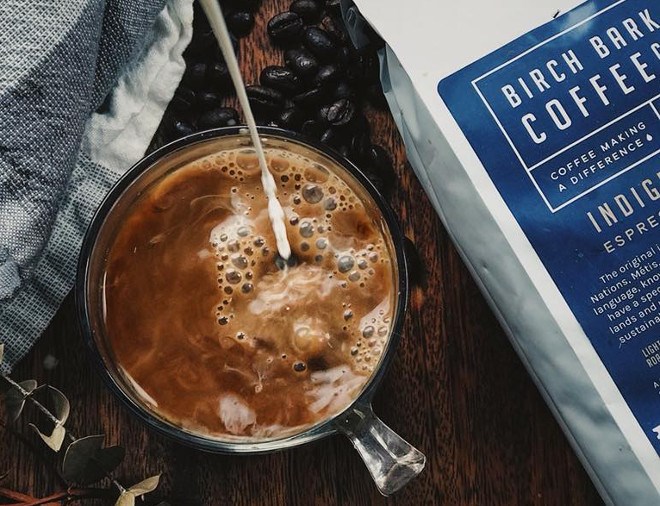Scrolling through his social media feeds, Mark Marsolais-Nahwegahbow found himself becoming more and more disillusioned with the growing water problem facing Canada’s Indigenous communities. As the boil water advisories mounted, preventing so many Indigenous people from having immediate access to clean, potable water, he was moved to action.
His solution, as it turns out, was coffee.
In March, Marsolais-Nahwegahbow, a member of the Whitefish River First Nation, launched the Birch Bark Coffee Company, an Ottawa-based coffee roastery that produces fair trade, certified-organic coffee.
More than just a coffee company, Birch Bark is a social enterprise: $2.50 from the sale of every pound of coffee will go into a trust to purchase water purifiers for every home in an Indigenous community in Ontario that’s experiencing water issues.
“I really can’t fix the bigger problem of the water plant, but I can definitely bring clean water into a home instantly,” Marsolais-Nahwegahbow said. “And when I’m done Ontario, I’m moving my way across Canada to work on every province.”
In Canada, boil water advisories are issued when there are problems with the water treatment system, and viruses, bacteria or parasites are present. Residents are advised to boil their water for a full minute before using it to drink, cook, bathe, and more.
At the end of May, the federal government had listed 76 long-term drinking water advisories in effect for Indigenous communities across Canada. It has said it’s committed to ending all on-reserve drinking water advisories by March 2021.
Birch Bark is partnering with Can-Am Wellness, which is providing BelKraft multi-stage water filtration systems at a reduced cost to the company, which will be installed in homes free of charge, Marsolais-Nahwegahbow said.
Good for processing up to 1,000 gallons of water, the purifiers’ biodegradable cartridges last between 18 and 24 months, helping to remove everything from bacteria and viruses to heavy metals.
In May, Marsolais-Nahwegahbow launched an online crowdfunding campaign to help raise additional money for the cause after receiving inquiries on how people could further help. He said he’s also been approached by retail and institutional organizations interested in hosting his coffee in house.
“I’m getting a lot of people reaching out, saying they want to be part of this, and it’s really not me; it’s the cause,” he said. “It’s about feeling part of something, this movement of wanting a change.”
Yet, as noble as the cause is, Marsolais-Nahwegahbow recognizes that people aren’t going to buy the product if it’s not good-tasting coffee.
Birch Bark currently offers five blends, including espresso and decaf varieties, each retailing for $18.99 per pound. In taste tests, he said his coffee consistently came back with high praise from consumers. The key, he believes, is sticking to the organic, fair trade, freshly roasted mantra he set out with.
“People are going to get their coffee so freshly roasted – within two to three days,” he said. “It's going to be unreal.”
Though his company is just a few months old, social justice work isn’t new for Marsolais-Nahwegahbow.
He’s spent more than 25 years in the justice field, with a focus on eliminating the overrepresentation of Indigenous people in the Canadian criminal justice system. In 2015, he launched IndiGenius, an Aboriginal justice consulting firm, which prepares Gladue reports for people facing incarceration.
Opening his own business, he said, was the next step in his journey of self-determination as a First Nations person, “showing that I can make changes in my own community and I don’t need the help of government.”
He also wants to inspire Indigenous youth who might be interested in business. That’s why, if Birch Bark takes off, Marsolais-Nahwegahbow plans to relocate the entire enterprise to his home community near Manitoulin Island, and eventually launch Birch Bark Coffee Cafés in other Indigenous communities around the province, where youth can find work while learning about entrepreneurship.
Marsolais-Nahwegahbow estimates he’ll need about $70,000 to buy enough water purifiers for all 700 homes in his first target community. Curve Lake First Nation has been under a boil water advisory for more than a decade, and the government has spent millions of dollars providing residents with bottled water rather than construct a new water treatment plant, he said.
But the leftover plastic bottles are quickly clogging up the community’s landfill, leaving Marsolais-Nahwegahbow convinced that an initiative like his is needed now more than ever.
“What if every person in Canada bought one bag of coffee?” he mused. “I could, overnight, change a national problem.”




